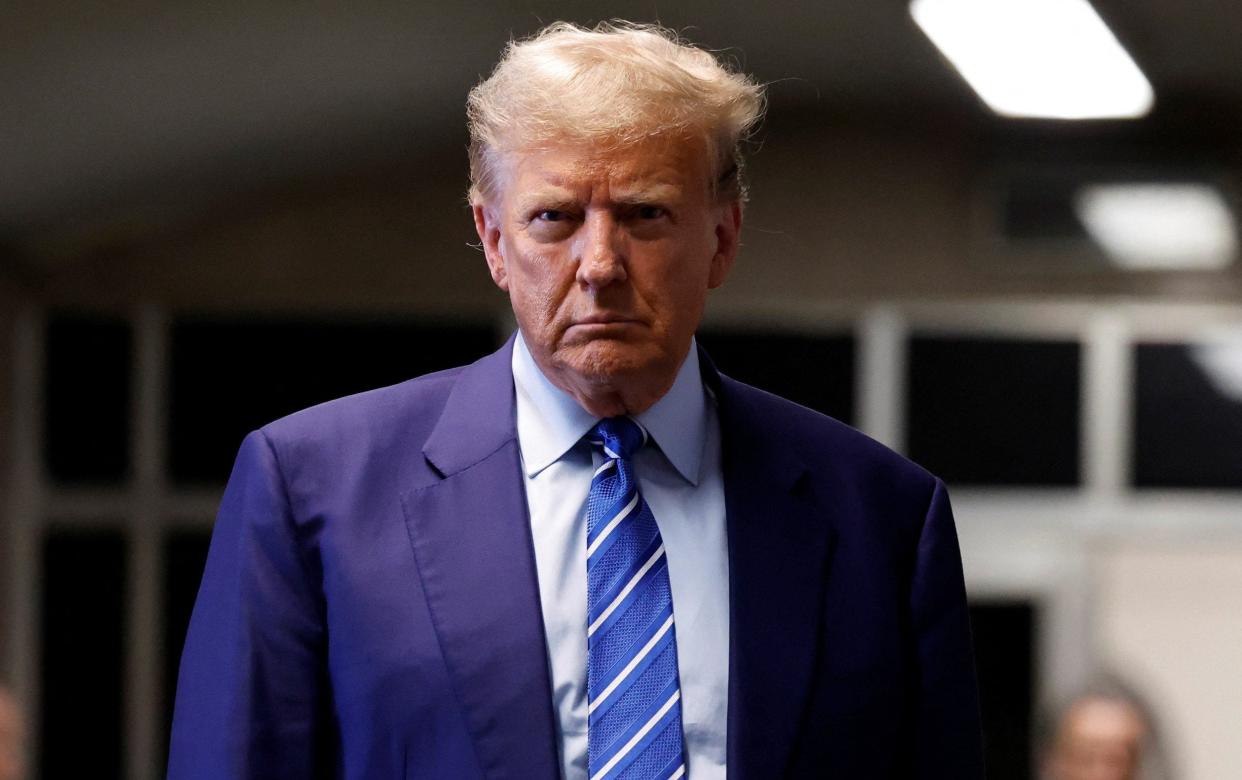The Supreme Court is the last bulwark against Critical Legal Studies

“Politics ain’t beanbag” Finley Peter Dunne’s Mr. Dooley observed 130 years ago, and today’s US political culture, replete with extreme passions, sometimes violent rhetoric, defamation and dirty tricks, is probably as rough as it has ever been.
The criminal trial occurring now in New York around a business records felony arising from checks Mr. Trump issued from his personal bank account is the latest fruit of a poisonous tree.
It’s in this context that the US Supreme Court held oral arguments last week to consider “whether and if so to what extent does a former President enjoy presidential immunity from criminal prosecution for conduct alleged to involve official acts during his tenure in office.”
Or, to put it more bluntly, is President Biden immune from prosecution by clever prosecutors appointed by President Trump next year after Trump wins his second term?
It’s true that the Supreme Court hearing arises from one of the four criminal cases brought against Mr. Trump after he announced that he was running for President, but several Justices seemed fully cognisant that sauce for the goose will be sauce for the gander too. (Note however that President Trump has made clear that the only revenge he seeks is success for the American people, so of course any suggestion that Biden might be prosecuted is a mere hypothetical.)
During oral arguments, President Trump’s counsel conceded that Trump could be prosecuted for private acts, and the Biden Administration’s counsel conceded that the President is immune from prosecution for certain official acts. This narrowed the scope of the disagreement and opened the door to overturn lower court holdings denying presidential immunity.
Discussing the structure of the Constitution, precedents and policy considerations, a majority of the court appears likely to hold that Presidents enjoy immunity from criminal prosecution for official acts, and that this immunity extends past their term in office, but it is unclear whether the scope of immunity will be to the “outer perimeter of his official responsibility”, coextensive to the absolute Presidential immunity from civil actions the Court delineated in Nixon v. Fitzgerald.
Immunity lowers a President’s personal risk from being second guessed and criminally harassed over his or her decisions, encouraging Presidents to be bolder and less legalistic. But reducing a President’s personal risk from decision making might increase the amount of Presidential criminal activity, although there are political constraints and other structural penalties (such as impeachment) beyond the criminal law.
On the other hand, if Presidents are prosecuted after leaving office, it green lights score-settling and harassment by political rivals who succeed them. This increases the personal risk of decision making, exacerbates existing political divisions and further destabilises our democracy.
This is legal reasoning seasoned by pragmatic analysis, attempting to maximise stability while minimising criminality to serve the public interest and build support for the rule of law. And because no one is arguing that the Nixon v. Fitzgerald immunity from civil claims for official acts was a mistake or has had bad consequences, extending that ruling (or a variation on that ruling) to criminal claims just makes sense. So, it’s likely that the Court will ask the lower courts to analyse Trump’s indictment in light of his immunity for official acts before bringing him to trial.
This is great judging; that it surprises some commentators, is bemoaned for possibly slowing the rush to judge Trump guilty and was absent in the courts below says much about our current state of affairs. Too many reporters root, instead of report, and too many in our legal system treat law as a ritual to announce a result instead of a restraint on power.
Most lawyers and judges in our legal system today attended law school during the academic ascendancy of the Critical Legal Studies movement, the thrust of which is that law is nothing more than politics. Whatever the academic value of deconstructing language in past opinions to diminish and demean reasoning from a Marxist perspective, prosecuting or judging to achieve a political goal can only lead to incoherence and increase cynicism about the law.
On the other hand, seeking to achieve the ideals of the Rule of Law – neutrality, equal treatment and equal standing – and seasoning principled reasoning with pragmatic considerations to make the law work well for the people, builds popular support for the Rule of Law. People have an inherent sense of fairness that’s informed by the belief we deserve to have the law apply to, and be applied against, us equally. Principled pragmatism just works better.
Richard Porter is a Lawyer and the Republican National Committeeman from Illinois


